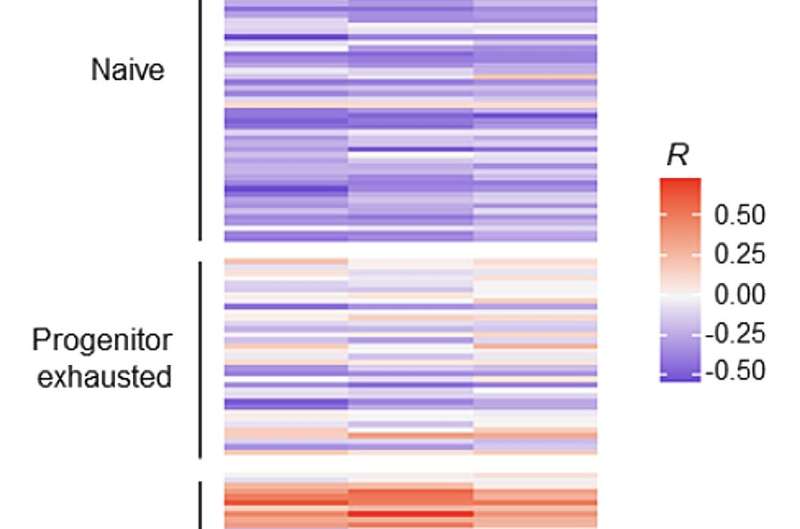This article has been reviewed according to Science X's editorial process and policies. Editors have highlighted the following attributes while ensuring the content's credibility:
fact-checked
peer-reviewed publication
proofread
Soluble immune checkpoint factors in blood as potential biomarkers of therapeutic efficacy for ICI cancer immunotherapy

Cancer is a prevalent disorder where cells divide and grow uncontrollably and eventually spread to other regions or organs in the body. Non-small cell lung cancer (NSCLC) is a highly prevalent form of lung cancer. Current therapeutic strategies against NSCLC involve the administration of immune checkpoint inhibitors (ICIs) as they provide significant clinical benefits for patients with NSCLC.
ICIs target specific immune checkpoint proteins, such as the cytotoxic T lymphocyte-associated protein-4 (CTLA-4) and/or programmed cell death-1 (PD-1). The expression of PD-1 ligand (PD-L1) in tumor tissue (tPD-L1) is currently used as a biomarker to determine the efficacy of PD-1 or PD-L1 targeted treatment in patients with NSCLC. However, due to heterogeneity of tPD-L1 expression and insufficient prediction value, there is a need for additional biomarkers.
Against this backdrop, a team of researchers from Japan involving Professor Hidetoshi Hayashi and Professor Kazuhiko Nakagawa from the Department of Medical Oncology, Faculty of Medicine at Kindai University, along with Professor Kenji Chamoto and Professor Tasuku Honjo from the Department of Immunology and Genomic Medicine, Graduate School of Medicine at Kyoto University, have attempted to study soluble forms of immune checkpoint factors in blood plasma measured by a chemiluminescent magnetic technology-based automated assay. Their findings were published in The Journal of Clinical Investigation.
"Professor Honjo, who is a Nobel Prize winner in the field of Medicine, suggested that it is important to understand the tumor immune environment more dynamically using blood samples instead of tumor tissues," says Prof. Hayashi.
The team assessed the soluble forms of immune checkpoint molecules, PD-L1, PD-1, and CTLA-4 in the blood samples of patients with advanced NSCLC before PD-1/PD-L1 blockade therapy. They conducted a prospective trial with 50 patients who received nivolumab and were referred to as the "discovery cohort."
Patients who received specific treatments such as PD-1/PD-L1 blockade therapy, cytotoxic chemotherapy, or targeted therapy were grouped into different study cohorts, collectively called the "validation cohort" and were retrospectively analyzed. They found elevated concentrations of soluble immune checkpoint factors in patients with immune-reactive tumors, who were nonresponsive to PD-1/PD-L1 blockade therapy. In contrast, such a correlation was not seen in patients treated with cytotoxic chemotherapy or targeted therapy.
Furthermore, a comprehensive analysis of the tumor size, tPD-L1 levels, and gene expression in tumor tissue and peripheral CD8+ T cells indicated that high levels of soluble PD-L1, PD-1, and CTLA-4 correlated with exhausted antitumor immunity. Soluble PD-L1 and CTLA-4 levels together were able to efficiently predict PD-1/PD-L1 blockade therapy efficacy in NSCLC patients with hot tumors (tumors characterized by a high infiltration of various infiltrating immune cells).
"The blood-based soluble markers could less-invasively identify patients who would benefit more from ICIs, while potentially providing another treatment option in cases where efficacy is unexpected. Also, appropriate selective treatment for patients with advanced NSCLC will lead to prolonged survival rates," says Prof. Hayashi..
The identification of soluble immune checkpoint molecules in blood plasma as biomarkers could thus pave the way for better treatment outcomes for patients with advanced NSCLC.
More information: Hidetoshi Hayashi et al, Soluble immune checkpoint factors reflect exhaustion of antitumor immunity and response to PD-1 blockade, Journal of Clinical Investigation (2024). DOI: 10.1172/JCI168318



















